When it comes to homeowners tools, no one competes with Ryobi. Now it’s not for a lack of trying from other power tool manufacturers but Ryobi dominates this segment for a couple of reasons. Ryobi manufacturers homeowner tools that have professional features. In fact, there are lots of professional tradesmen who use these tools. Second, you get a quality tool for much less than other tools on the market. Third, the Ryobi line is huge. So you can own one battery platform and buy all most any tool and it works on this line. Well, I could sit here and name another ten reasons why Ryobi dominates but let’s get into the Ryobi cordless compressor review and see what we like and don’t like about this tool.
Ryobi Cordless Compressor Review Overview
Compressors are great, well in regards to getting the job done. Two things that always bother me with a compressor is the power cord and the noise. Sure you have the air hose, but not much you can do with that.
I have been working on my house and I have gone all most completely cordless. I am tired of tripping over extension cords, trying to find an open outlet and ruining power cords. It’s just a pain dealing with cords.
If only someone made a cordless compressor. Well, we are in luck. Ryobi has one and all I can say, it was awesome using my Porter Cable pin nailer to build my shelves, mantle and TV stand and not have to deal with a power cord. I only have two outlets in the house that work so it would have been very hard and frustrating to deal with a power cord while still trying to cut the wood and perform other tasks.
Ryobi Cordless Compressor Review Features
The Ryobi compressor (Model P739) is a 1-gallon compressor delivers up to 120 psi, all without a power cord.
The compressor is powered by a Ryobi 18V Battery. This battery is part of the One+ which means it works with any Ryobi power tool.
The tank is made of steel, so while it does increase the weight (14 lbs), it also increases the durability.
The gauge placement is typical of compressors where you have the tank psi on the left and the outlet pressure on the right. Stuck in the middle is the lockable pressure adjustment.
Both gauges are very easy to read and are numbered every 30 psi.
The unit features a metal bar on both sides that allows the user to wrap an air hose and allows for easier storage and transporting when using as a finish nailer or filling up tires or kids toys.
Each leg is supported by a rubber foot to protect the surface and allow the unit not to walk when filling.
There is a single universal push-to-connect quick coupler which makes it easy for one-handed operation.
As with all other compressors, this has a safety valve in case the motor doesn’t shut down and needs to release pressure.
Located by the battery, there is a toggle switch to turn the unit on or off.
On the bottom of the unit, there is a drain valve to let air or water out after use.
The handle has a rubber grip making it more comfortable to carry around.
Ryobi Cordless Compressor Review Performance
So here is the deal. There is a lot to love about this and some things I would like to to see changed. So let’s start with the pros of this compressor.
First I love how fast it fills the task. While it’s not a huge tank, I am not waiting longer than a minute to fill the tank.
Second, I love how the needle is steady. You won’t see the needle bouncing around which is always nice when you’re trying to read the pressure.
Third, I like how easy it is to change the pressure. Sure all compressors are easy to adjust the pressure, but since this system locks the pressure in, all you have to do is pull out the dial, change the pressure and push it back in to lock it back in place.
Fourth, I like how the unit doesn’t move or bounce around when it’s filling. The rubber feet help keep the unit in place and not move around, plus it protects the work surface it;’s sitting on.
Fifth, I love the weight. The unit isn’t heavy or bulky when trying to carry it around.
For the last item, I love the runtime. Now this will vary, but I feel like I was able to get a ton of work out of it before I had to change the battery.
While there is a lot to love about this unit, there is one thing I would like to see changed and that would be the gauge placement. You have to more or less be at eye level to read the gauges. Now maybe this is designed to be on a workbench and then this isn’t an issue. For me, I had it on the floor and the gauges weren’t tilted where I could look down on them and get an accurate reading. Not a huge deal in the end, but something to be noted.
OK, so the noise level which is a huge issue. You know most compressors are extremely noisy especially when used inside. While this compressor does is on the loud side, it’s not annoying or painful to the ears. Most of the time you have a motor and you can hear the rod or something knocking making it very loud. This doesn’t have that annoying metal on metal banging. So while it’s loud, it’s not something that really stands out.
Ryobi Cordless Compressor Review Value
As with the other Ryobi tools, I think this compressor is priced extremely fair. The unit sells for about $100 at The Home Depot. Sure your not going to be running a framing nailer off this, but for the homeowner who is doing DIY projects, this is perfect. Even for the professional who has to do some punch list items like fixing trim or casing, this is a huge plus to carry around a lightweight unit, get in and get out.
Ryobi Cordless Compressor Review Final Thoughts
Bottom line, how can you go wrong with this compressor? The compressor has a good build quality, offers great runtime and does the job. Considering you can invest in a line that offers one of the largest lines of cordless products, it’s hard not to get into this compressor for your small projects.

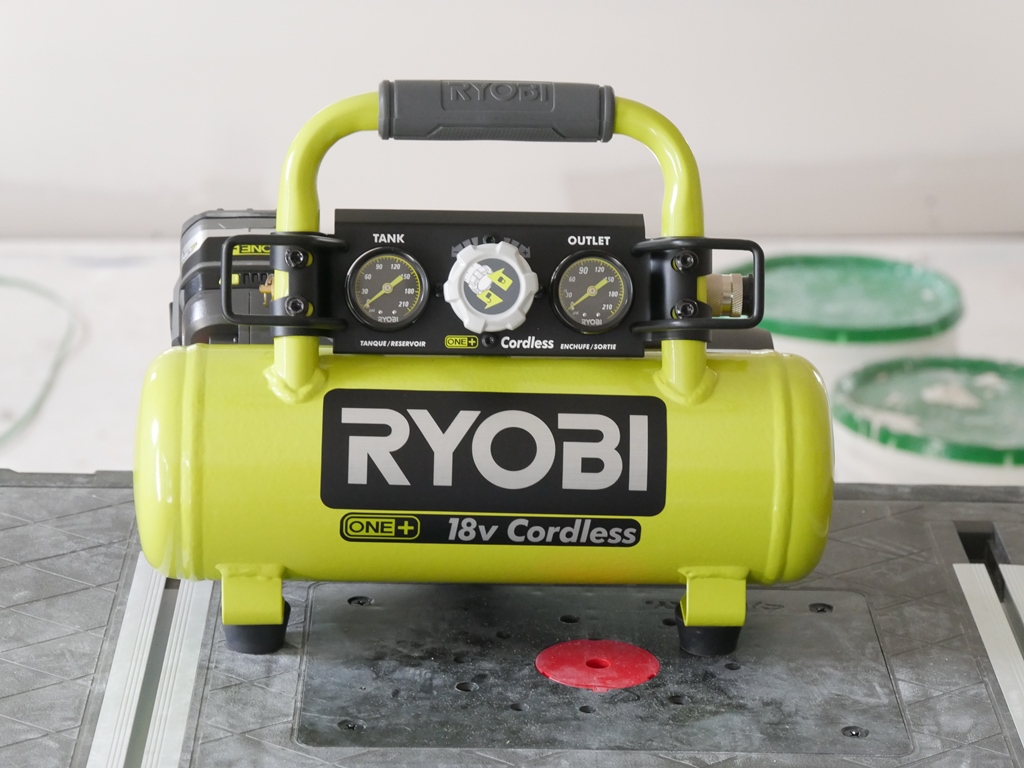

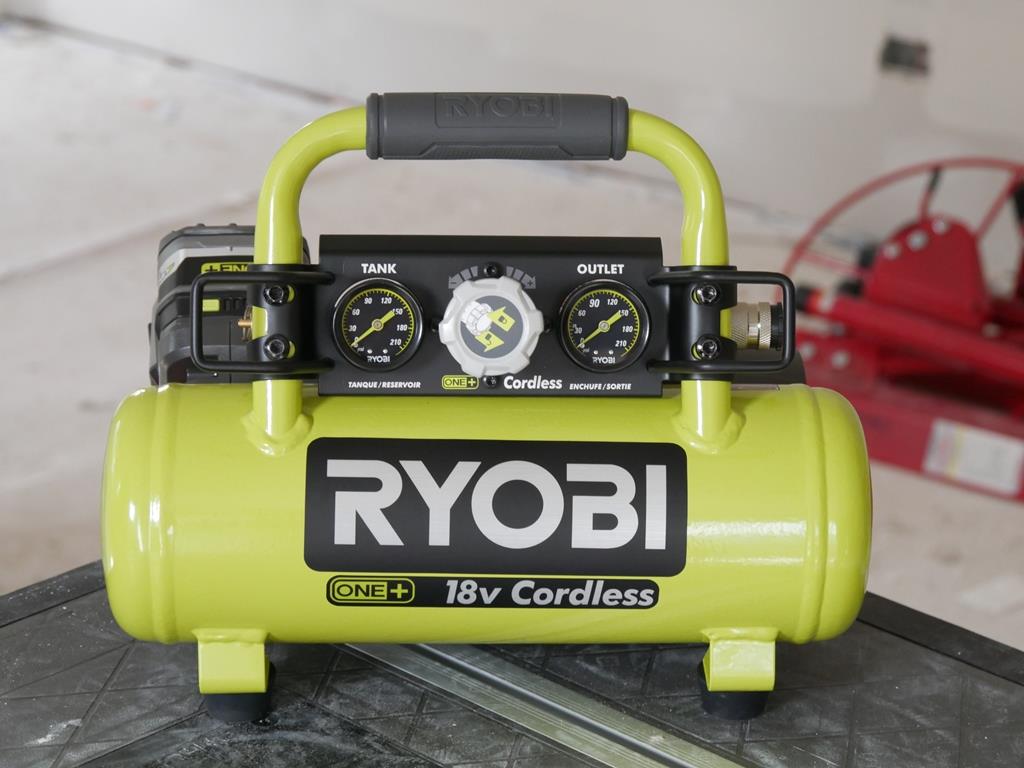
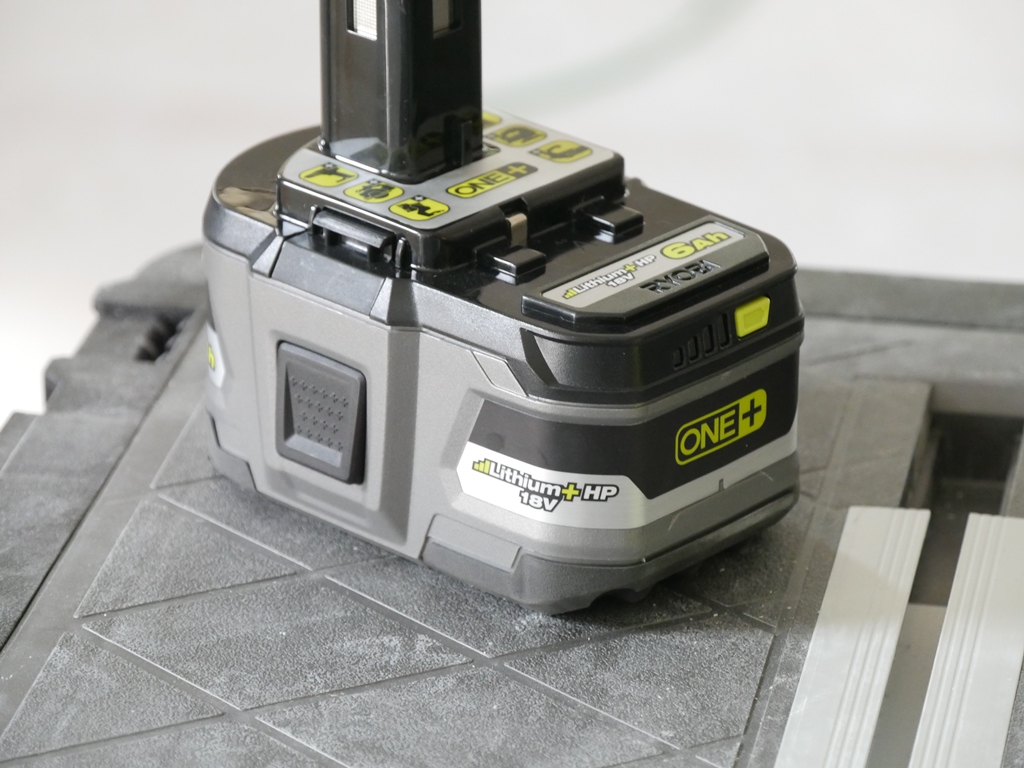
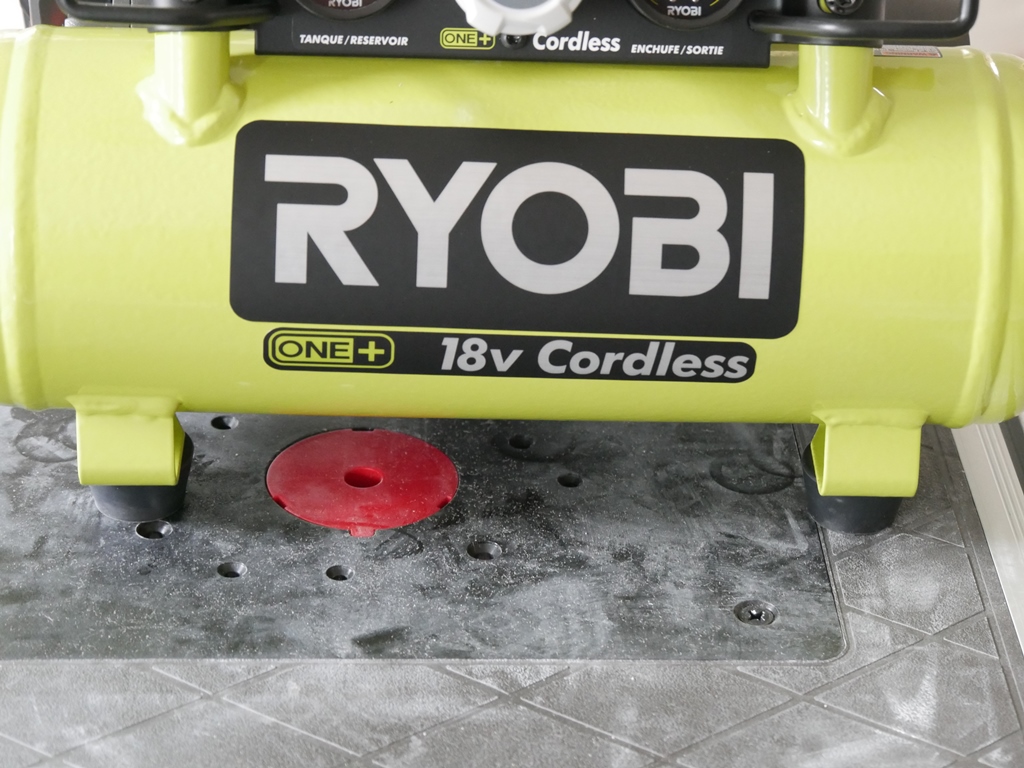
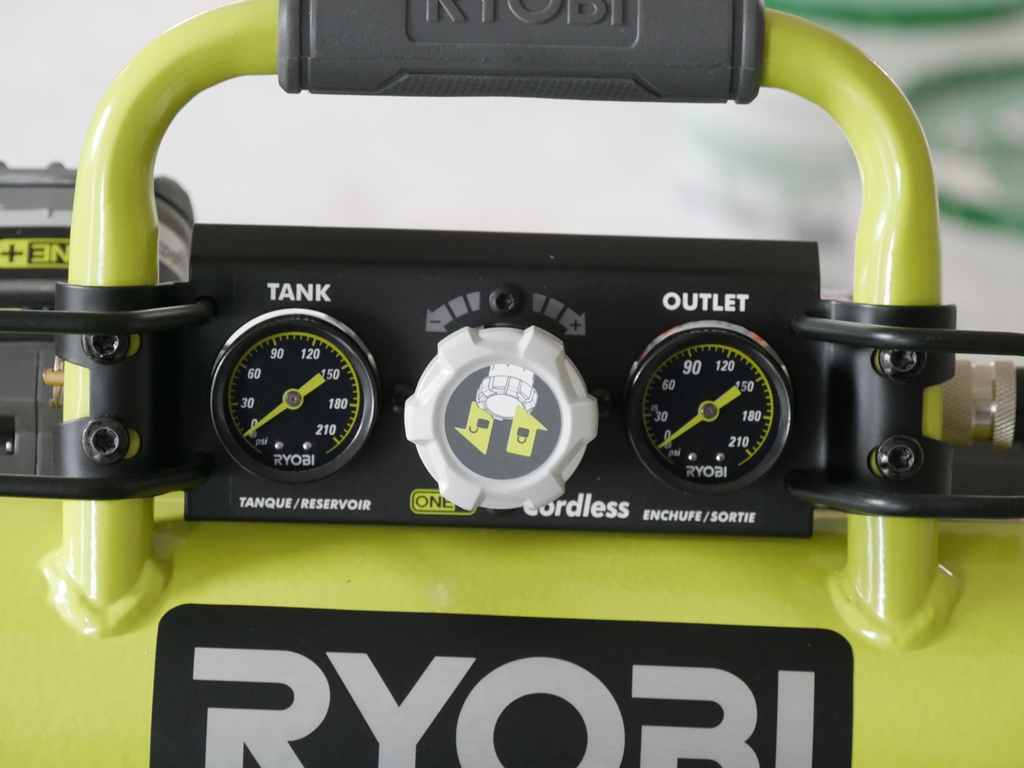
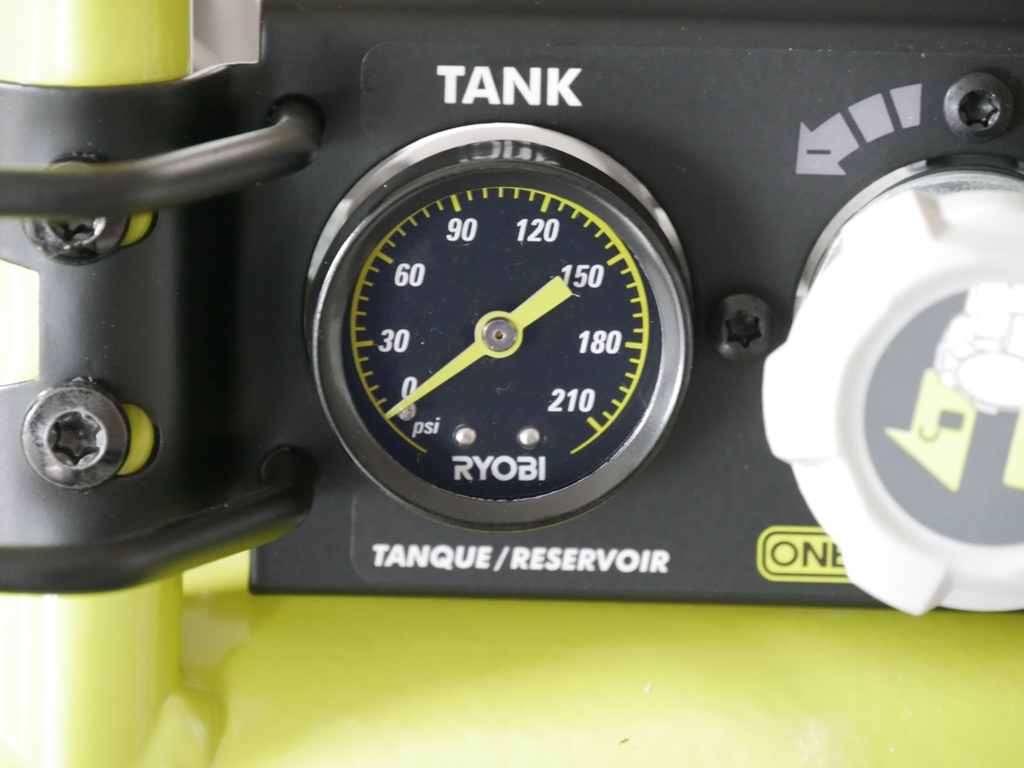
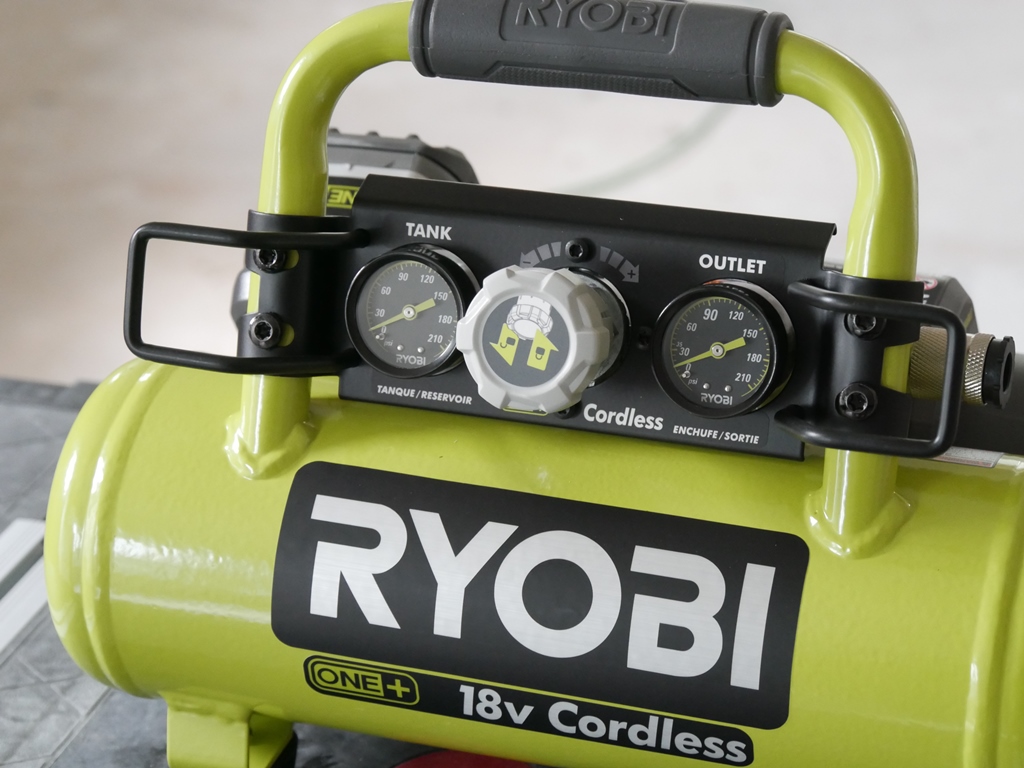
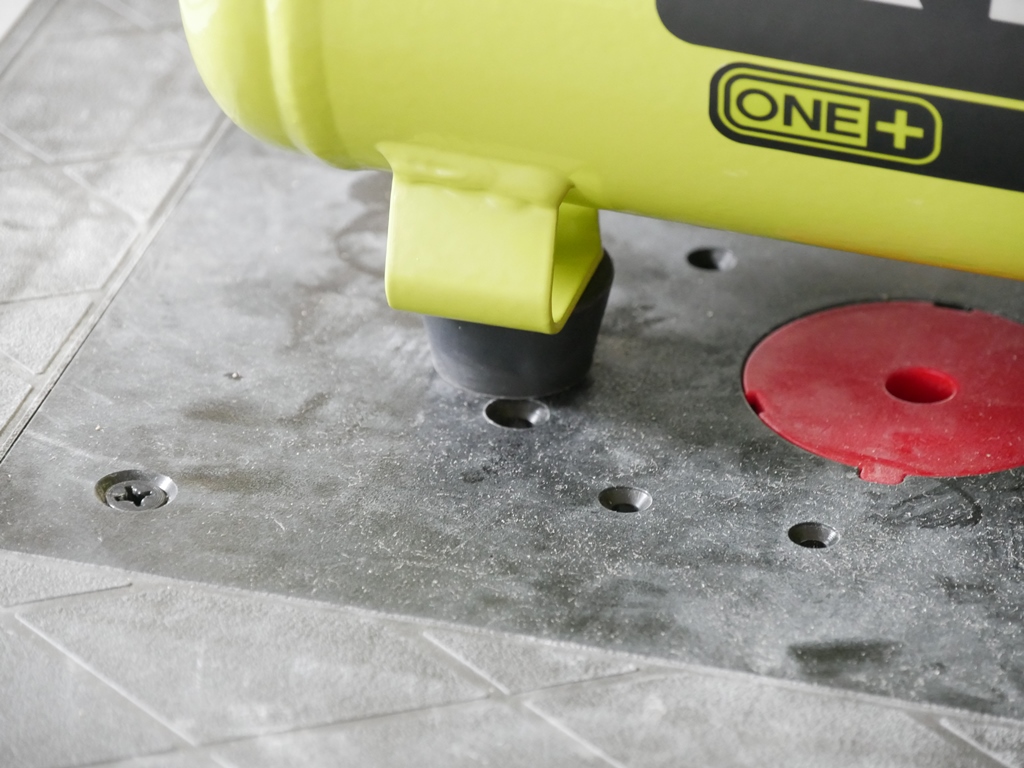
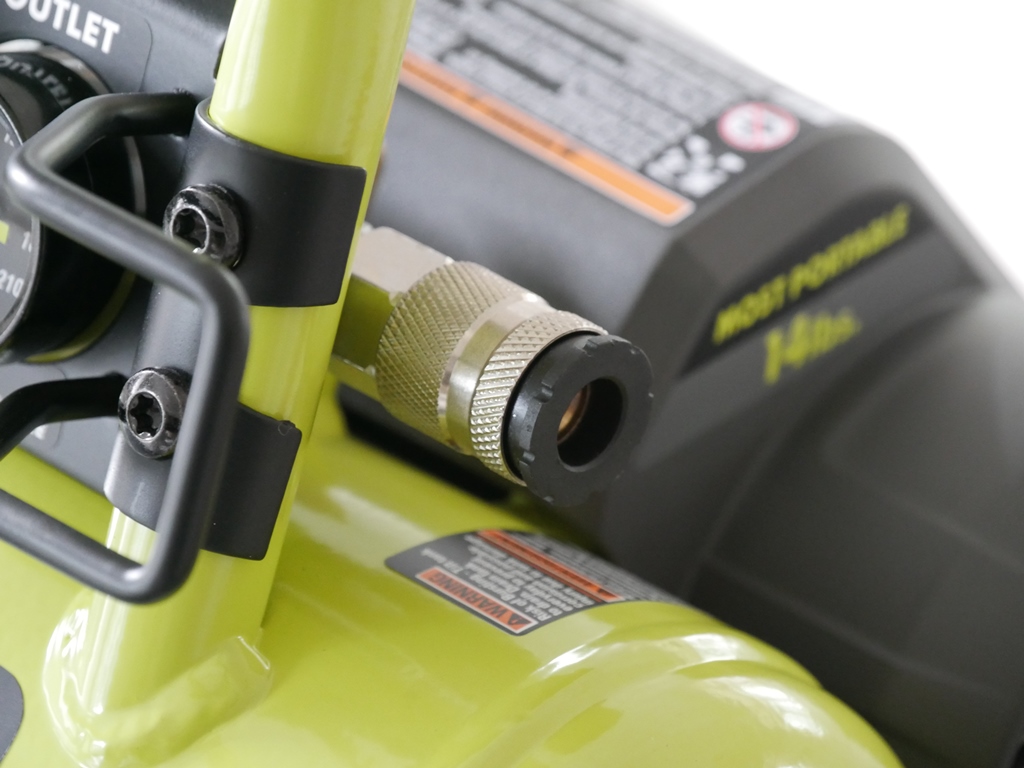
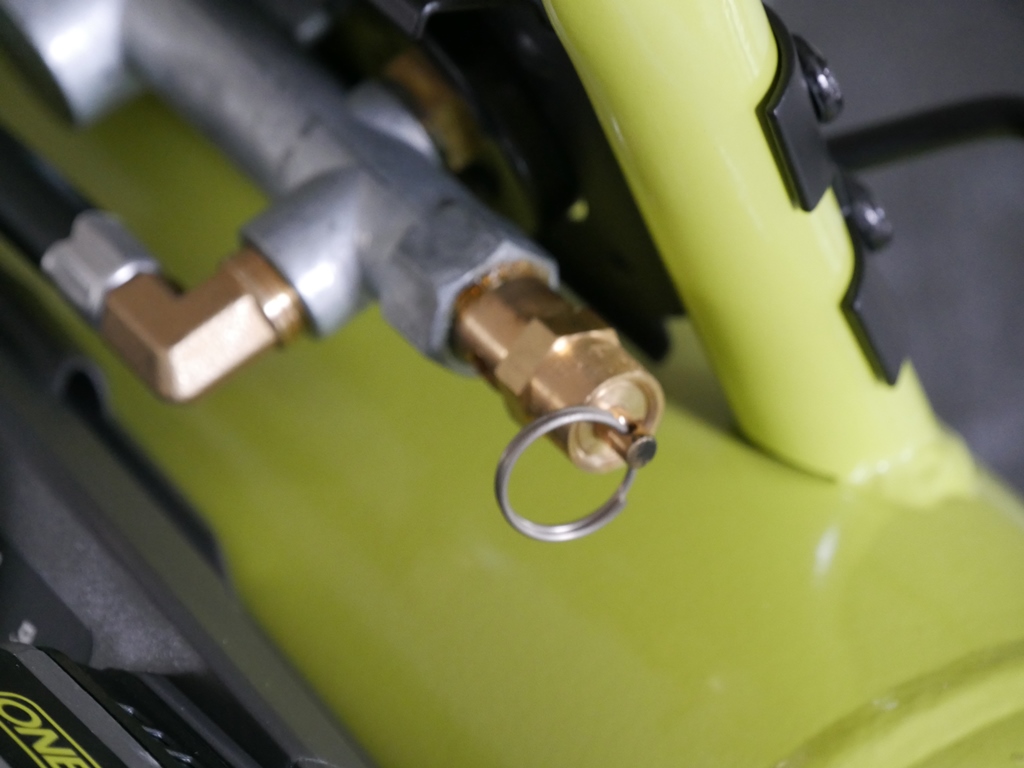
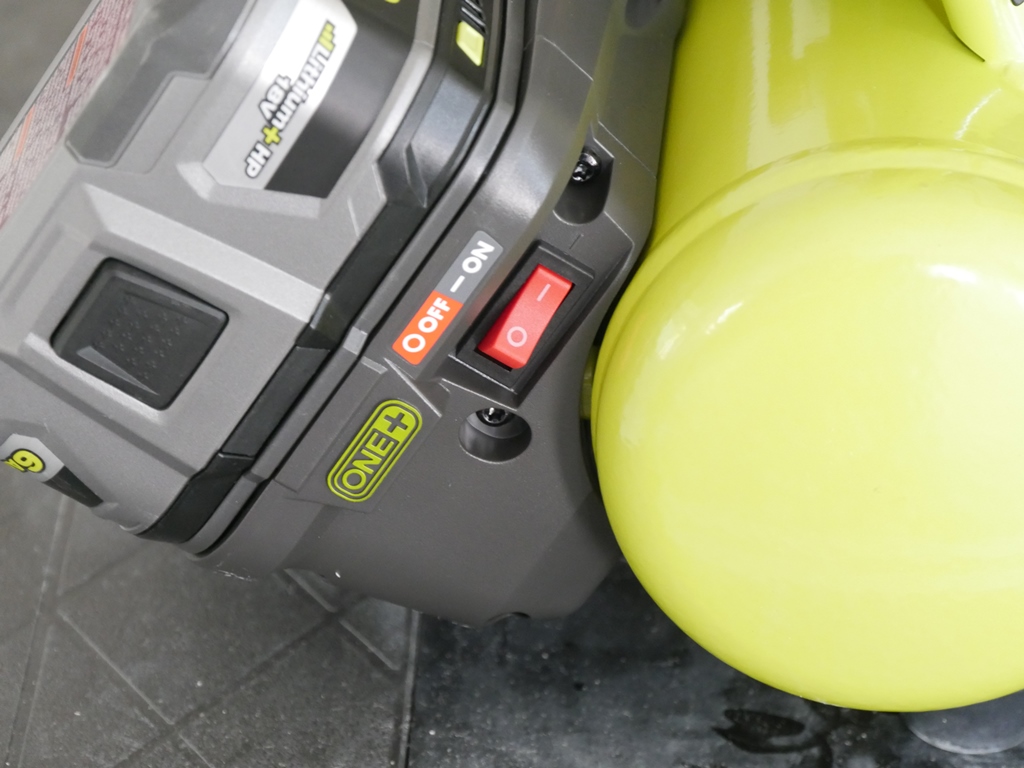
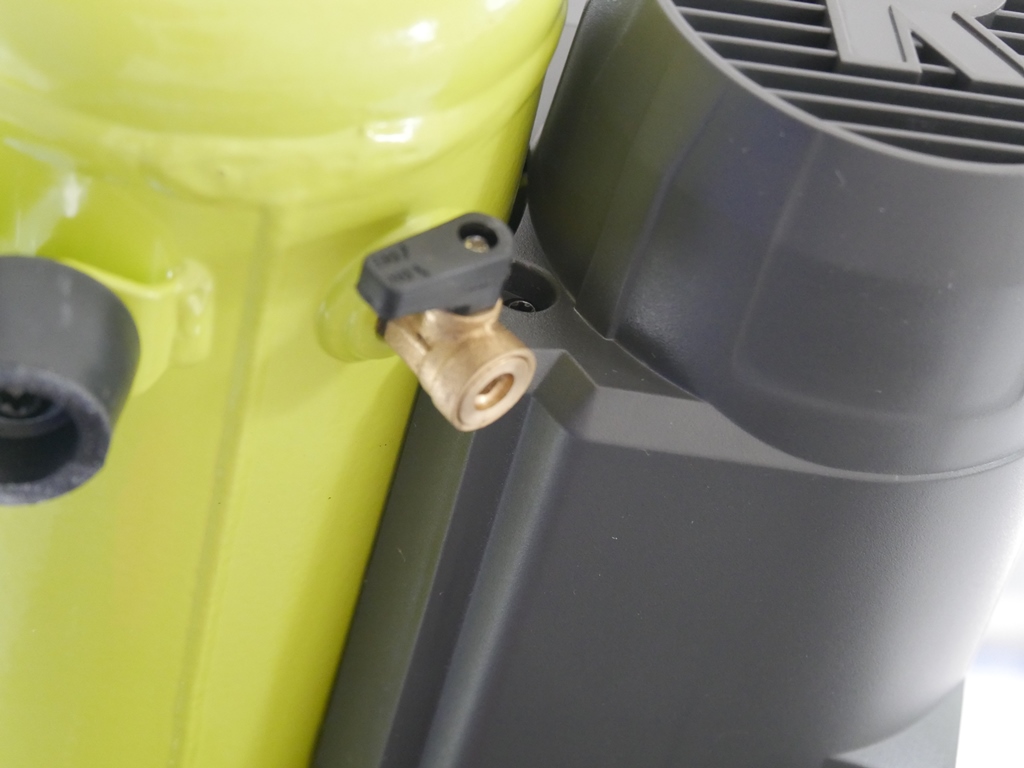
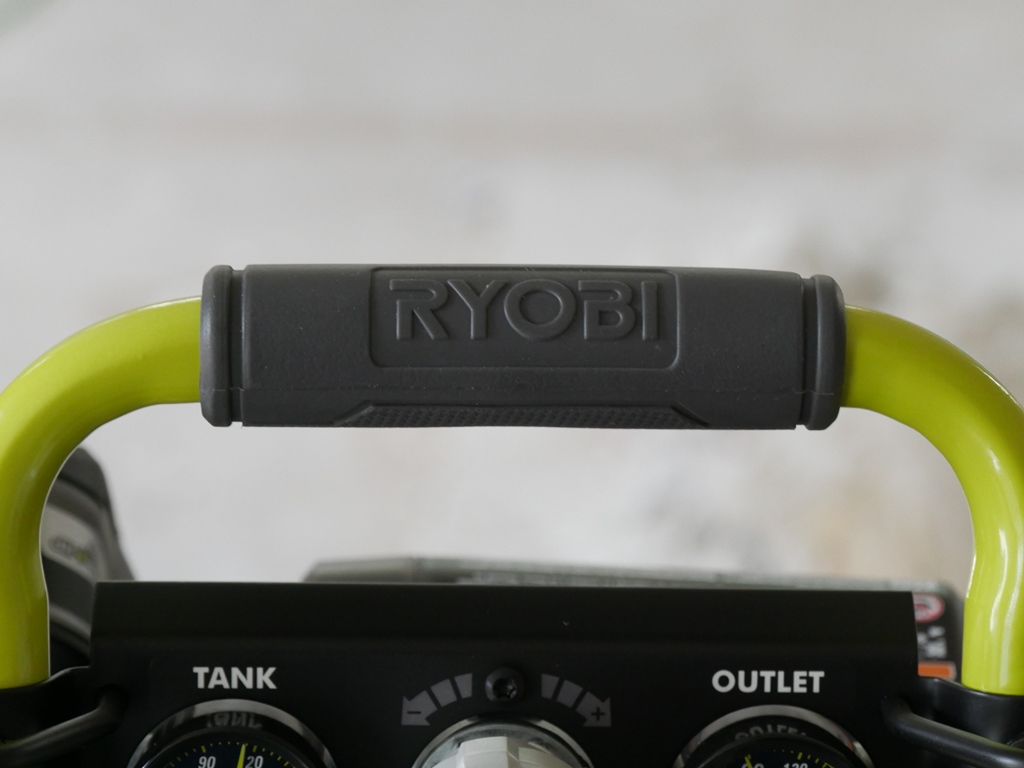
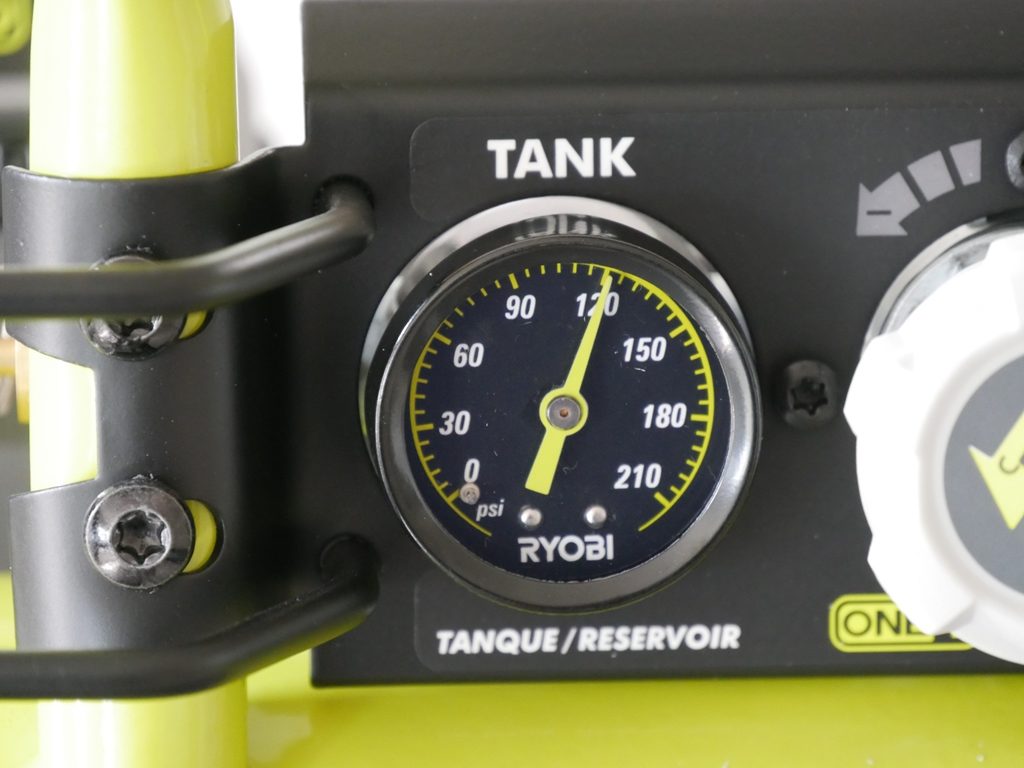
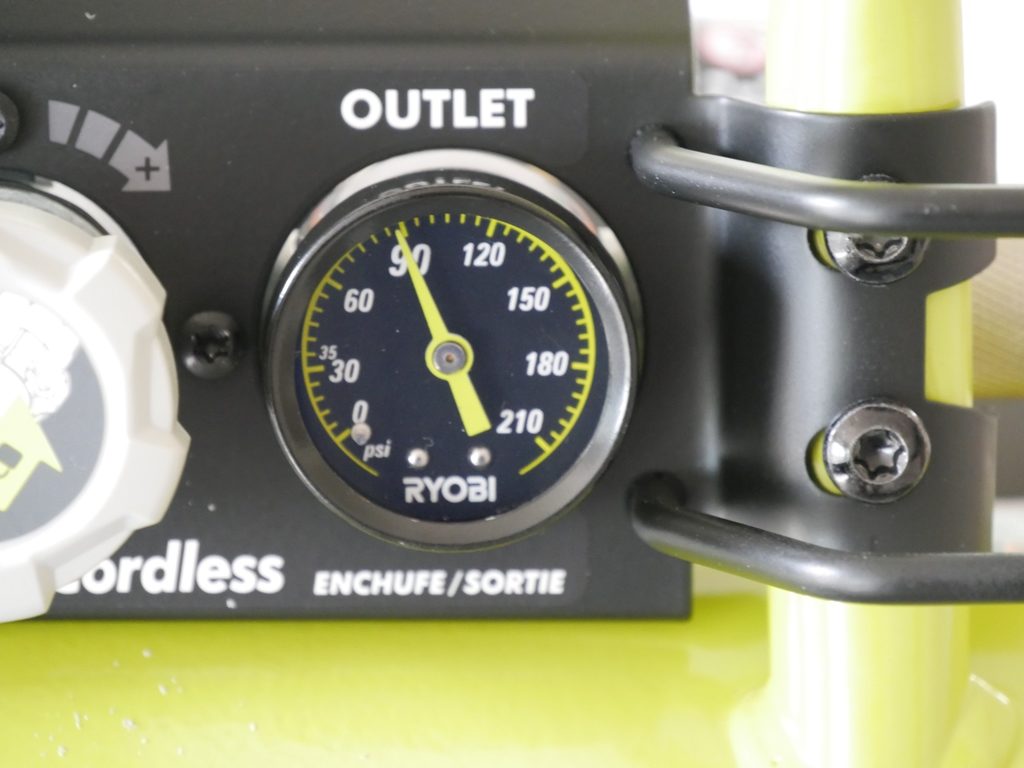
I like this idea-I often use my compressor for cleaning my vehicles, blowing dust out of electronics etc. This could be a great alternative although I am sure using a blow gun would require a lot of cycling to refill. Still interesting for sure.
I think the best comparison test would be using this compressor and a traditional finish nailer vs Ryobi’s cordless nail guns. Yes, a compressor can blow dust and a few other things, so is it worth the trade offs?
Hey Greg – I agree. I just snagged Ryobi’s 18 gauge brad nailer and 16 gauge finish nailer combo when they were “special purchase of the day” at Home Depot a couple of weeks ago. I had to wait for delivery to the store, and just started exercising these a couple of days ago. I really like the tools, but there’s always a clear set of trade offs between dedicated cordless tools like these and compressor like the one in the review. I love using Ryobi One+ tools and being completely untethered. A set of cordless tools like these, though, can wind up costing a few hundred dollars. With a compressor available, you can use pneumatic tools, which are generally cheaper per tool, and smaller than their cordless counterparts. But — even though this compressor itself is cordless, with pneumatic tools you obviously need the hose, and you have the noise — neither of which are issues with cordless tools (e.g., the One+ tools). I can see folks arguing in favor of either alternative. I, personally, am willing to spend extra to get the dedicated One+ tools. Ryobi’s cordless nail guns are brilliant. No doubt there will be a few instances in which a pneumatic tool might be better – but for the vast majority of my work, going completely cordless – AND hoseless – is the preferred choice.
I used this little 1 gallon compressor to run my Freeman 9gauge fence stapler. Fantastic I didn’t have to set up my larger compressor its cords and hoses.
This was one of those little finish up jobs made for this little rig.
Piece of junk battery’s died after 5 min inflating tank
Adds extra step to constantly keep a extra battery charged
Recall it now
Hard wired electric units the best